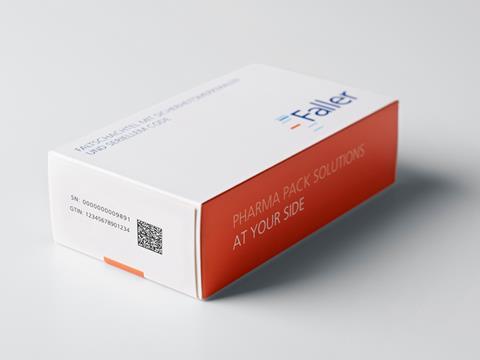
From 1 January 2020, suppliers of pharmaceutical products will be required by law to put crypto codes on their products for the Russian market. The purpose is to ensure better traceability and reliable protection against counterfeiting. The packaging specialist company August Faller has already expanded its manufacturing capacity to include printing of codes on folding cartons and labels.
The crypto codes required by Russian law for identification, verification and tracking of pharmaceuticals and other products can have a data density of up to 44 x 44 modules. The data quantity is much greater than with the serialisation stipulated by EU countries. Manufacturers are thus faced with the difficult task of printing more data in a similar area while maintaining consistently high quality.
To add to their difficulties, the law in question was passed in January 2019 and will come into effect only a year later, leaving very little time for companies to modify their processes. August Faller, a specialist company for pharmaceutical packaging, has therefore reacted to this new challenge by investing in the software and hardware necessary for printing the crypto codes. An example is its higher-resolution camera system for grading, based as usual on ISO 15415. As a consequence, Faller is already able to print the Russian codes on folding cartons and labels.
In addition to the GTIN and a serial number, the new codes include a verification part consisting of a verification key and a digital signature. The verification part with its crypto key is designed to make product counterfeiting much more difficult.













